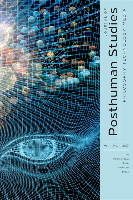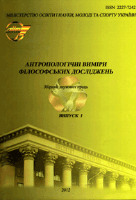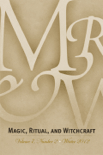
KronoScope-Journal for the Study of Time
Scope & Guideline
Unraveling Time's Mysteries Through Interdisciplinary Inquiry
Introduction
Aims and Scopes
- Interdisciplinary Approaches to Time:
The journal emphasizes the importance of interdisciplinary research, bringing together insights from sociology, philosophy, literature, anthropology, music, and technology to deepen the understanding of time. - Temporal Experience and Perception:
A significant focus is placed on how individuals and societies experience and perceive time, including studies on temporal discomfort, memories, and the emotional dimensions of temporal experiences. - Historical and Cultural Contexts of Time:
The journal explores how different cultures and historical periods conceptualize and manage time, including studies of calendars, temporalities in literature, and historical time in various societies. - Technological Influences on Time:
Research on how technology shapes our understanding and experience of time, including the impact of digital lives and modernity on temporal practices. - Philosophical and Theoretical Perspectives on Time:
KronoScope engages with philosophical discussions surrounding time, including the nature of time, its representation in narratives, and its implications for identity and existence.
Trending and Emerging
- Digital and Socio-Temporal Dynamics:
Recent publications highlight the relationship between digital lives and time, particularly how technology influences social interaction and temporal experiences. This theme is increasingly relevant in discussions of modernity and the impacts of digital culture. - Temporal Agency and Discomfort:
There is a growing interest in the concepts of temporal agency and discomfort, examining how individuals navigate their experiences of time. This emerging theme reflects a deeper inquiry into how personal and societal pressures shape our relationship with time. - Ecological and Environmental Temporalities:
An emerging focus on ecological and environmental perspectives on time, particularly in relation to the Anthropocene, addresses how ecological crises reshape our understanding of time and temporality. - Cultural and Contextual Variations of Time:
The journal is increasingly exploring the cultural variations in the understanding of time, including indigenous perspectives and historical contexts. This reflects a broader interest in how time is constructed and experienced across different societies. - Narrative and Memory in Time Studies:
The interplay between narrative, memory, and time is gaining traction, with studies focusing on how temporal narratives shape identity and collective memory in various contexts.
Declining or Waning
- Chrononormativity:
There appears to be a decreasing focus on chrononormativity, which examines the societal expectations and norms surrounding time management and productivity. This theme, while once prevalent, has seen a reduced emphasis as more nuanced discussions of temporalities emerge. - Traditional Temporal Measurement Systems:
Research specifically centered on traditional time measurement systems, such as sundials or mechanical clocks, has diminished. The journal's recent papers lean more towards abstract and theoretical explorations of time rather than concrete historical studies. - Linear Narratives of Time:
The exploration of linear narratives in literature and history has waned. The journal is shifting towards more complex and non-linear understandings of time, reflecting contemporary theoretical frameworks.
Similar Journals

Acta Philosophica
Navigating the Landscape of Philosophical ThoughtActa Philosophica is a prestigious academic journal dedicated to the exploration and analysis of philosophical thought. Published by Fabrizio Serra Editore in Italy, this journal serves as a vital platform for scholars, presenting rigorous research that contributes to the field of philosophy. With an ISSN of 1121-2179 and an E-ISSN of 1825-6562, Acta Philosophica is indexed in prestigious databases, enhancing its visibility and impact within the academic community. Active since 2011, this journal has emerged as a significant player in the discipline, currently positioned in the Q3 quartile for Philosophy in 2023 and ranked #557 among 806 journals in the Arts and Humanities category on Scopus, placing it in the 30th percentile. Researchers and students alike will find valuable insights within its pages, as it covers a broad spectrum of philosophical inquiries. Although not an open-access journal, its rich content makes it essential reading for anyone invested in advancing philosophical discourse.

Ingenium-Revista Electronica de Pensamiento Moderno y Metodologia en Historia de la Ideas
Illuminating the Intersection of History and Ideas.Ingenium - Revista Electronica de Pensamiento Moderno y Metodologia en Historia de la Ideas is a pivotal academic journal dedicated to the exploration and analysis of modern thought and methodological frameworks in the history of ideas. Published by the esteemed Universidad Complutense de Madrid, this journal serves as a vital platform for scholars interested in interdisciplinary studies that merge philosophy, history, and social sciences. With an ISSN of 1989-3663, Ingenium stands at the forefront of academic discourse, encouraging the dissemination of knowledge without barriers through its Open Access principles. By fostering a rigorous academic environment, Ingenium aims to enrich the scholarly community's understanding of the evolution of ideas and their impact on contemporary thought. As such, it is an essential resource for researchers, professionals, and students striving to navigate the complexities of modern intellectual landscapes.

Hybris-Revista de Filosofia
Exploring the Depths of Philosophical ThoughtHybris-Revista de Filosofia, published by the CENTRO ALTOS ESTUDIOS FILOSOFICOS & CIENCIAS SOCIALES-CENALTES in Santiago, Chile, is a premier open-access journal dedicated to the exploration and advancement of philosophical thought and interdisciplinary dialogue. Established in 2009, the journal provides a vibrant platform for original research articles, critiques, and essays that delve into various philosophical paradigms, encouraging contributions from scholars across the globe. As an open-access journal, Hybris ensures that its scholarly content is freely accessible, promoting the dissemination of knowledge and fostering collaboration among researchers, professionals, and students alike. With an emphasis on innovative ideas and diverse perspectives in philosophy, Hybris plays a pivotal role in shaping contemporary discourse and is an essential resource for anyone interested in the evolving landscape of philosophical inquiry.

Journal of Posthuman Studies-Philosophy Technology Media
Challenging Conventional Thought at the Crossroads of Philosophy and MediaJournal of Posthuman Studies - Philosophy Technology Media, published by Penn State University Press, serves as a critical forum for interdisciplinary explorations at the intersection of philosophy, technology, and media. With ISSN 2472-4513 and E-ISSN 2471-4461, this journal aims to examine the implications of posthumanist thought through the lens of contemporary societal and cultural dynamics. Since its inception in 2019, it has established itself within prominent academic categories, ranking Q3 in both Arts and Humanities (miscellaneous) and Cultural Studies, and showcasing a commitment to fostering discussions in gender studies and sociology. Though currently lacking an Open Access format, its rigorous peer-reviewed articles contribute significantly to ongoing discourse, making it an essential resource for researchers, professionals, and students engaged in related fields. With a steady focus on the evolving landscape of human experience in a technologically infused era, the journal invites contributions that challenge traditional paradigms and encourage innovative thinking.

Aisthema-International Journal
Connecting scholars and practitioners across diverse fields.Aisthema-International Journal is a leading open-access publication that serves as a valuable platform for scholars and practitioners in various interdisciplinary fields. Established in 2014, this journal publishes innovative research and critical reviews that advance knowledge and inform best practices across a diverse range of topics. With its commitment to open access, Aisthema ensures that high-quality research is freely available to a global audience, thus promoting the dissemination of important findings. Published by AISTHEMA, INT JOURNAL in Naples, Campania, Italy, the journal is dedicated to fostering academic dialogue and collaboration among researchers, professionals, and students alike. By focusing on high-impact contributions that are relevant and rigorous, Aisthema continues to establish itself as a pivotal resource in the academic community.

Topicos-Revista de Filosofia
Cultivating a Vibrant Community of Philosophical ThinkersTopicos-Revista de Filosofia, published by UNIV PANAMERICANA, DEPT FILOSOFIA, stands as a significant academic platform within the field of philosophy, actively contributing to scholarly discourse since 2006 through its open access model. With an ISSN of 0188-6649 and an E-ISSN of 2007-8498, this journal is dedicated to fostering critical thought and philosophical inquiry in both regional and global contexts. Operating out of Mexico City, it provides a vital avenue for researchers, professionals, and students to engage with contemporary philosophical issues, reflected in its ranking of Q3 in the 2023 category for Philosophy and its position within the 33rd percentile among over 800 peer journals in the field according to Scopus. Topicos not only prioritizes accessibility to philosophical scholarship but also aims to propel academic discussions and elevate the standards of philosophical research. With coverage extending from 2013 to 2024, it invites contributions that bridge diverse philosophical traditions and innovative thought pathways, reinforcing its role as an influential resource for the philosophical community.

Anthropological Measurements of Philosophical Research
Pioneering Research at the Nexus of Two DisciplinesAnthropological Measurements of Philosophical Research is a distinguished open-access journal published by the ACAD V LAZARYAN DNIPROPETROVSK NATL RAILWAY TRANSPORT UNIV, dedicated to advancing interdisciplinary scholarship at the intersection of anthropology and philosophy. Since its inception in 2012, this journal has provided an invaluable platform for researchers, professionals, and students to disseminate innovative ideas and research findings, thereby fostering a deeper understanding of anthropological principles applied to philosophical inquiries. The journal encourages submissions that explore theoretical frameworks, longitudinal studies, and methodological advancements within this complex field. With a commitment to accessibility, it operates under an open access model, facilitating wider dissemination and engagement with its content. Situated in Dnipro, Ukraine, this journal aspires to contribute significantly to global discourses on cultural and philosophical dimensions of human experience, making it essential reading for anyone interested in these critical areas of study. Scholars focused on developing multidisciplinary approaches will find Anthropological Measurements of Philosophical Research an indispensable resource in their academic pursuits.

Musicologica Brunensia
Cultivating a Global Community of Music ScholarsMusicologica Brunensia, an esteemed journal published by Masaryk University, Faculty of Arts, serves as a significant platform for the dissemination of knowledge in the field of musicology. Based in the Czech Republic, this Open Access journal has been facilitating scholarly communication since 2009, allowing unrestricted access to its rich array of research articles. With an ISSN of 1212-0391 and an E-ISSN of 2336-436X, Musicologica Brunensia proudly holds a Q3 ranking in the Music category as of 2023, reflecting its dedication to advancing research in the arts and humanities, particularly music. The journal accepts contributions spanning diverse topics within music studies, fostering interdisciplinary dialogue among researchers, professionals, and students alike. Located at Arne Novaka 1, Brno, 60200, Czech Republic, Musicologica Brunensia is poised to continue its journey of promoting innovative scholarship in musicology until 2024 and beyond, making it a valuable resource for anyone passionate about the field.

HUSSERL STUDIES
Illuminating the Path of Phenomenological ThoughtHUSSERL STUDIES is a prestigious journal dedicated to the exploration and advancement of phenomenological philosophy, with a particular emphasis on the work of Edmund Husserl. Published by Springer in the Netherlands, this journal serves as an essential platform for scholars, researchers, and students engaged in the philosophical discourse, analyzing Husserl’s contributions and their implications for contemporary thought. With an impressive Q1 ranking in the philosophy category and a notable position in the Scopus Arts and Humanities ranking, HUSSERL STUDIES stands out in its field, fostering interdisciplinary dialogue and critical engagement with phenomenology from 1984 to the present. The journal emphasizes rigorous scholarship, providing insightful articles that address both historical and modern perspectives of phenomenology, contributing significantly to the academic dialogue. Although operating under a subscription model, it remains committed to disseminating knowledge effectively among the academic community.

Magic Ritual and Witchcraft
Fostering Insights into the Magic of Human ExperienceMagic Ritual and Witchcraft, published by UNIV PENNSYLVANIA PRESS, is a pivotal journal in the fields of Cultural Studies, History, and Religious Studies, recognized for its scholarly contributions since its inception in 2014. With a strong focus on the interdisciplinary nature of magic and ritual practices across cultures, this journal provides a platform for original research, critical reviews, and theoretical discussions that illuminate the complexities of these phenomena. Operating from the heart of the United States, Magic Ritual and Witchcraft has attained a commendable standing within its category quartiles, ranked Q2 in 2023, indicating its significance and reach within the academic community. Despite not being an open-access journal, its articles are accessible through libraries and institutions, ensuring that this essential body of work reaches a diverse audience of researchers, professionals, and students passionate about the intersections of culture, history, and the sacred. As the dialogue around ritual practices continues to evolve, this journal remains an invaluable resource for advancing scholarship and fostering insights into the magical dimensions of human experience.